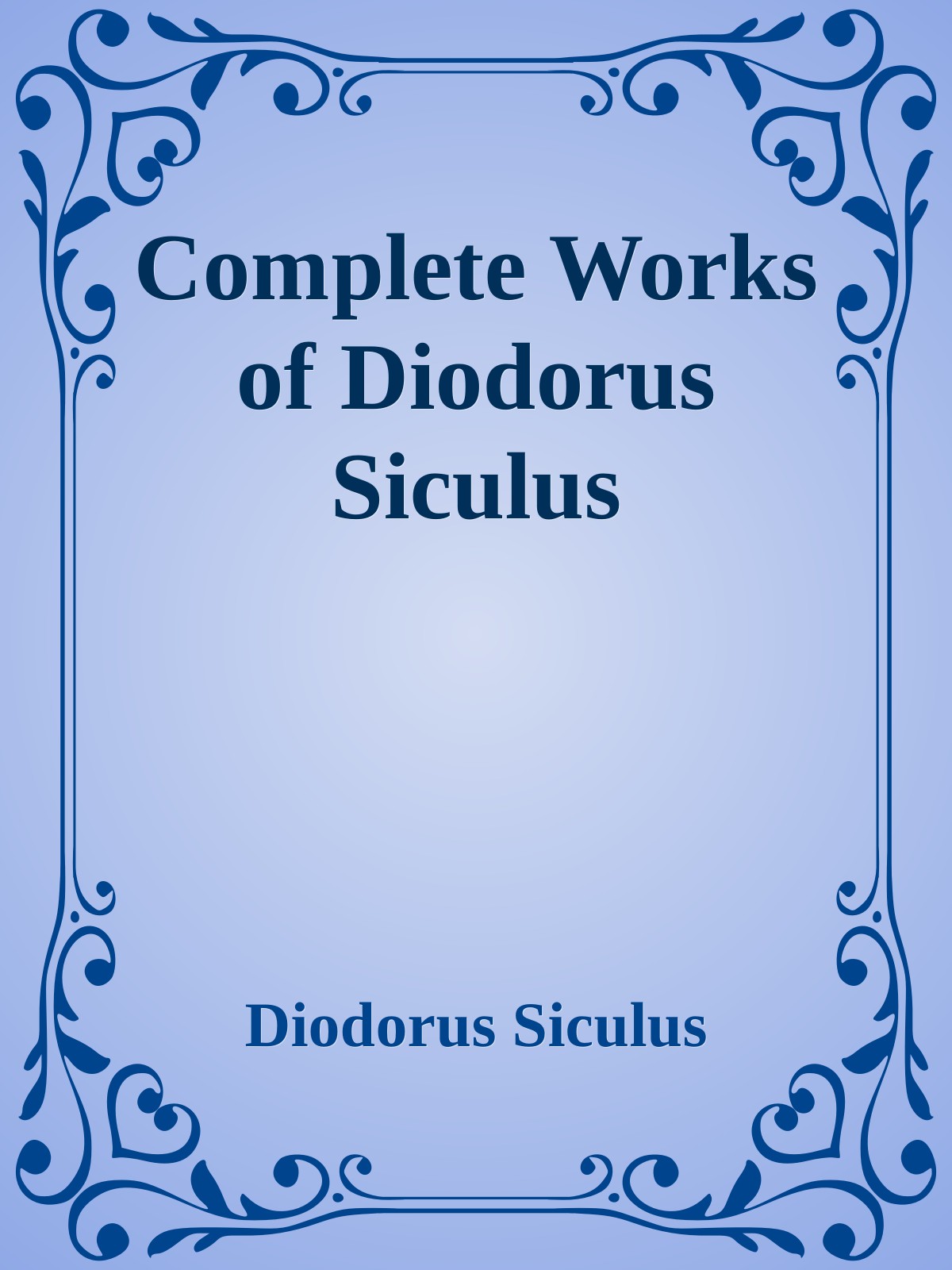

Most ebook files are in PDF format, so you can easily read them using various software such as Foxit Reader or directly on the Google Chrome browser.
Some ebook files are released by publishers in other formats such as .awz, .mobi, .epub, .fb2, etc. You may need to install specific software to read these formats on mobile/PC, such as Calibre.
Please read the tutorial at this link: https://ebookbell.com/faq
We offer FREE conversion to the popular formats you request; however, this may take some time. Therefore, right after payment, please email us, and we will try to provide the service as quickly as possible.
For some exceptional file formats or broken links (if any), please refrain from opening any disputes. Instead, email us first, and we will try to assist within a maximum of 6 hours.
EbookBell Team

4.7
96 reviewsDiodorus Siculus (/ˌdaɪəˈdɔːrəs ˈsɪkjʊləs/; Greek: ΔΙόΔΩΡΟς ΣΙΚΕΛΙώΤΗς Diodoros Sikeliotes) (fl. 1st century BC) or Diodorus of Sicily was a Greek historian. He is known for writing the monumental universal history Bibliotheca historica, much of which survives, between 60 and 30 BC. It is arranged in three parts. The first covers mythic history up to the destruction of Troy, arranged geographically, describing regions around the world from Egypt, India and Arabia to Greece and Europe. The second covers the Trojan War to the death of Alexander the Great. The third covers the period to about 60 BC. Bibliotheca, meaning 'library', acknowledges that he was drawing on the work of many other authors.Diodorus' universal history, which he named Bibliotheca historica (Greek: ἹΣΤΟΡΙΚὴ ΒΙΒΛΙΟ&thΗήΚΗ, "Historical Library"), was immense and consisted of 40 books, of which 1-5 and 11-20 survive: fragments of the lost books are preserved in Photius and the excerpts of Constantine Porphyrogenitus. It was divided into three sections. The first six books treated the mythic history of the non-Hellenic and Hellenic tribes to the destruction of Troy and are geographical in theme, and describe the history and culture of Ancient Egypt (book I), of Mesopotamia, India, Scythia, and Arabia (II), of North Africa (III), and of Greece and Europe (IV-VI).In the next section (books VII-XVII), he recounts the history of the world from the Trojan War down to the death of Alexander the Great. The last section (books XVII to the end) concerns the historical events from the successors of Alexander down to either 60 BC or the beginning of Julius Caesar's Gallic Wars. (The end has been lost, so it is unclear whether Diodorus reached the beginning of the Gallic War as he promised at the beginning of his work or, as evidence suggests, old and tired from his labours he stopped short at 60 BC.) He selected the name "Bibliotheca" in acknowledgment that he was assembling a composite work from many sources. His account of gold mining in Nubia in eastern Egypt is one of the earliest extant texts on the topic, and describes in vivid detail the use of slave labour in terrible working conditions. Pappus of Alexandria wrote a Commentary on Diodorus's Analemma. The now lost Analemma applied geometrical constructions in a plane to solve some astronomy related problems of spherical geometry. It contained, for example, a discussion of sundial theory.He also gave an account of the Gauls: "The Gauls are terrifying in aspect and their voices are deep and altogether harsh; when they meet together they converse with few words and in riddles, hinting darkly at things for the most part and using one word when they mean another; and they like to talk in superlatives, to the end that they may extol themselves and depreciate all other men. They are also boasters and threateners and are fond of pompous language, and yet they have sharp wits and are not without cleverness at learning."